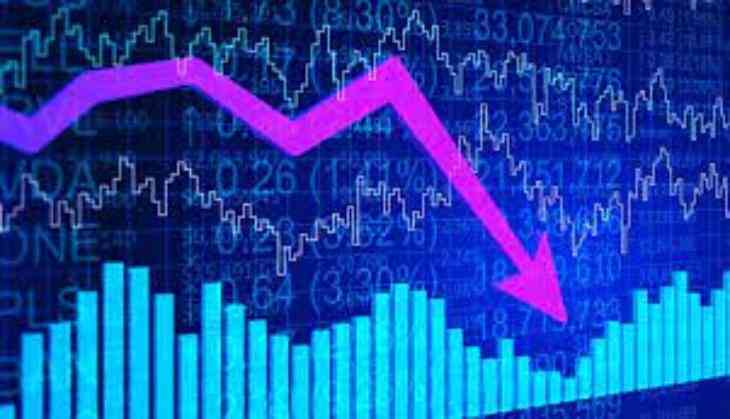
As the Dow (INDU) sank 876 points or 2.8 per cent on Monday, the US stocks have plunged into a bear market as Wall Street investors worry about drastic rate hikes.
The investors grew increasingly nervous about the prospect of even harsher medicine from the Fed to take the sting out of inflation, reported CNN.
The Nasdaq was down by 4.7 per cent and has tumbled more than 10 per cent in the past two trading sessions. The broader S&P 500 fell 3.9 per cent. That index is now more than 20 per cent below its all-time high set in January, putting stocks in a bear market.
Recession fears mounted after Friday's miserable Consumer Price Index report showed US inflation was significantly higher than economists had expected last month. That could make the Federal Reserve's inflation-control efforts more difficult, reported CNN.
After raising rates by a half-point in May -- an action the Fed hadn't taken since 2000 -- Chair Jerome Powell pledged more of the same until the central bank was satisfied that inflation was under control. At that point, the Fed would resume standard quarter-point hikes, he said.
But after May's hotter-than-expected inflation report, Wall Street is increasingly calling for tougher action from the Fed to keep prices under control. Jefferies joined Barclays on Monday in predicting that the Federal Reserve would hike rates by three-quarters of a percentage point, an action the Fed hasn't taken since 1994.
"After holding their breath for nearly a week awaiting the US CPI report for May, investors exhaled in exasperation as inflation came in hotter than expected," Sam Stovall, chief investment strategist at CFRA, said in a note to clients Monday morning.
Stovall said the risk of larger hikes dragged the markets lower Monday.
Investors fear two outcomes, neither of them good: Higher rates mean bigger borrowing costs for businesses, which can eat into their bottom lines.
And overly zealous action from the Fed could unintentionally plunge the US economy into a recession, especially if businesses start laying off workers and the red-hot housing market crumbles.
There's no sign that the job and housing markets are in danger of collapse, although both are cooling off somewhat, reported CNN.
The S&P 500 closed in a bear market, so the bull run that started on March 23, 2020 has come to an end.
This can cause nervousness in Indian markets. The Federal Reserve's rate hikes affect not only the US economy but also shape the macroeconomic outlook and have some influence on monetary policies in the other emerging economies.
Emerging economies, such as India, have higher inflation and interest rates than developed countries, such as the United States and many (mainly Western) European nations. As a result, financial institutions, particularly Foreign Institutional Investors (FIIs), prefer to borrow money in the United States at low-interest rates in dollar terms and then invest that money in the government bonds of emerging countries such as India in local currency terms to earn a higher rate of interest.
However, when the US Federal Reserve raises its domestic interest rates, the interest rate difference between the two countries decreases. This makes India less appealing for currency carry trades; as a result, some money may be expected to flow out of Indian markets and back to the US.
A currency carries trade is a strategy in which a high-yielding currency funds a low-yielding currency trade. As a result, the value of India's currency in relation to the US dollar decreases resulting in the inflow of FIIs in India.
(ANI)
Also Read: Pakistan's political parties blame each other for economic crisis in the country


